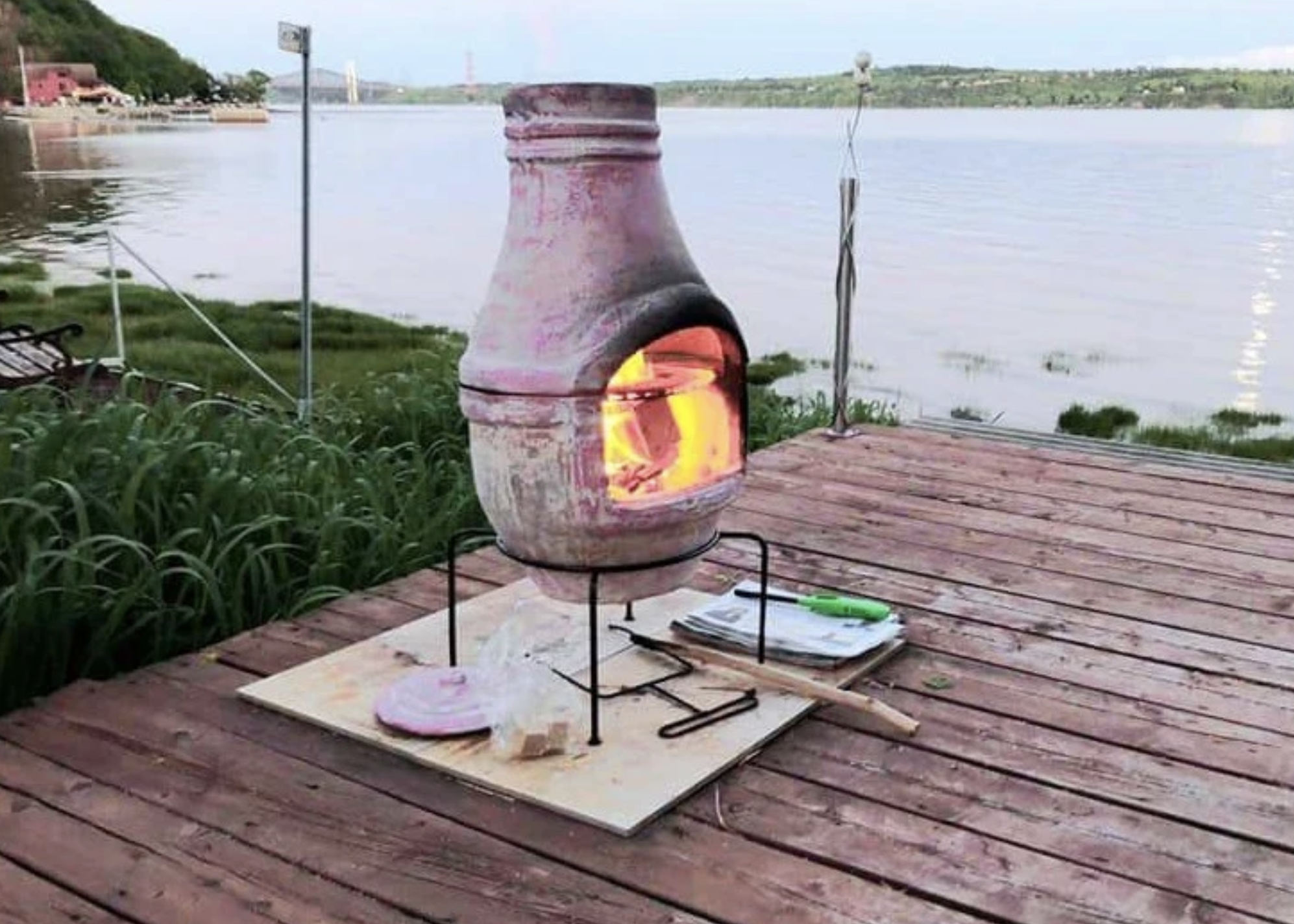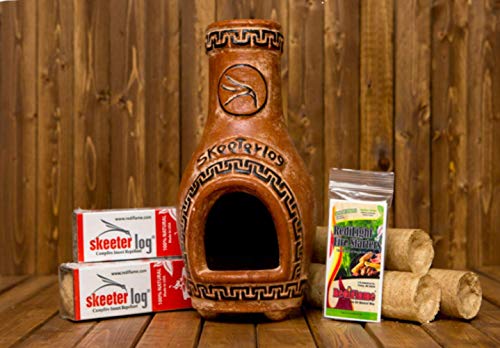Chiminea Care & Maintenance Guide
by Simmy Parker
Fire draws people in. Since its invention, fire has provided a source of warmth, light, comfort, and community. A chiminea is a step up from a firepit, a free-standing oven and fireplace that originated in South America.
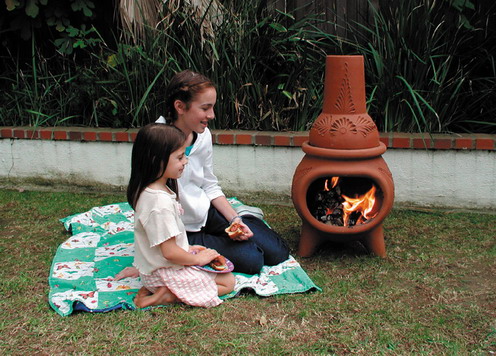
Chimineas act by drawing in air through the front and venting it up through a smoke stack. This design allows the fire to burn out completely after a period of time, making it a safe option for a backyard fire feature. And like all relationships, this one is give and take. Your chiminea will take care of you, and you have to take care of it.
| Top Pick: Sol y Tierra Clay Chiminea Pizza Oven |
|---|
|
| Lakeside Collection Outdoor Wood Burning Clay Chimenea with Metal Stand |
|---|
| Redi-Flame Chiminea Kit with Mosquito Repellent Log |
The amount of care and maintenance required depends upon the materials that comprise your chiminea. It will be made of either cast iron or clay. A cast iron chiminea is prone to rust, while a clay chiminea is prone to cracking. We have provided information on caring for both cast iron and clay models. If you want to know more about the specific differences between chimineas, you can also read our handy article on what are chimineas.
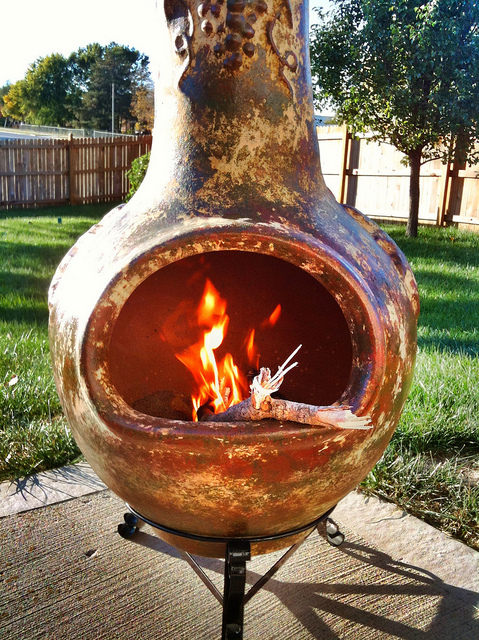
Cure Your Chiminea First
Before you use the chiminea, you will have to cure it, whether it’s iron or clay. Curing a chiminea essentially means that you are slowly preparing it to endure high heat. Curing a clay chiminea will render it stronger, making it less prone to cracking or breaking down. Curing an iron chiminea will cure the paint and help prevent rust. To cure a chiminea, iron or clay, follow these steps:
- Set balls of paper inside, and ignite them. Let this small fire burn out naturally, and allow the chiminea to cool thoroughly.
- Line the interior base with sand. This will provide protection, and you will keep sand in the chiminea from now on. Using kindling, light a second fire, slightly larger than the first one. Then allow it to burn out naturally, and allow the chiminea to cool thoroughly.
- Repeat this twice or thrice more, increasing the size of the fire each time. Ensure that you allow each fire to burn out naturally. The heating and cooling cycle is the key to preparing the chiminea for enduring high heat and larger fires.
For a visual reference, watch this video on how to cure your chiminea before using:
Now let us take a look at the two main types of chiminea – clay and cast iron, and get into more of the specifics of providing them with care and maintenance.
CLAY CHIMINEAS
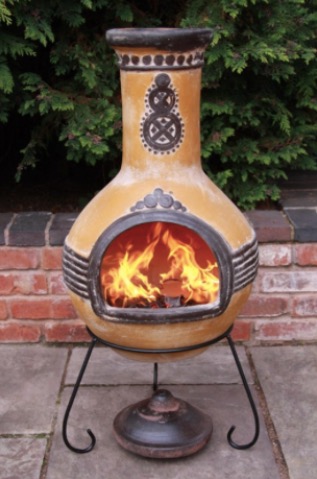
A clay chiminea is prone to cracking. However, you can take precautions against this by keeping the interior lined with sand, by only using kindling and firewood (as opposed to charcoal, due to temperature), and by sealing the exterior. This will prevent moisture from getting in.
This may seem like common sense, but common sense really isn’t so common these days. Your clay chiminea, though thick and solidified, is fragile. It will crack or break if it is dropped. The easiest way to avoid this is to decide on a location for the chiminea and then leave it in one place.
Some people like to rearrange their patios each year, and if you are one of these people, then move your chiminea using a cart. Clay chimineas are constructed of two pieces: the base and the stack. They are bonded while the clay is drying. This creates a weak point – where they are joined – so it is important to remember to never lift the chiminea by the stack. Always lift it by the base, and have a friend help you. Or else…this might happen.
=> Click here to read Our Review of the 2 Best Clay Chimineas
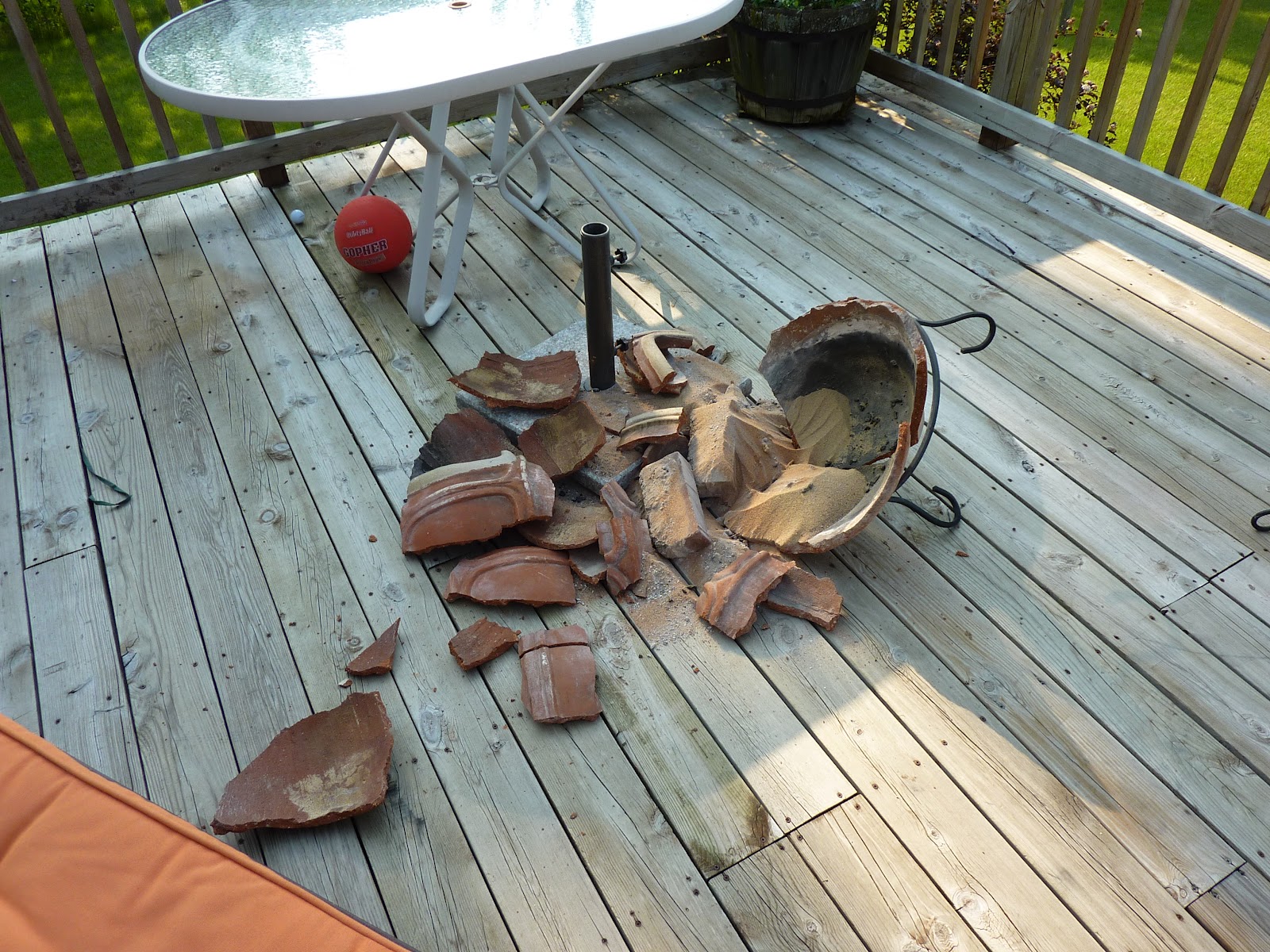
IRON CHIMINEAS
The initial curing of the chiminea will further cure the paint. The weight of cast iron chimineas has the advantage of making them difficult to move, and they can stand up to some weathering. There are also cast aluminum models available on the market, which have the look of iron but are lighter weight.
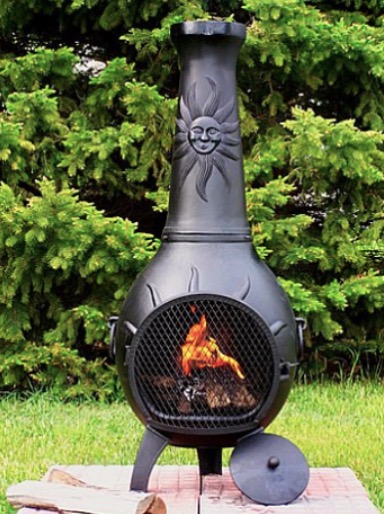
Regardless of its material, you should keep your chiminea inside during the winter months, to prevent rust. And since iron is prone to rust, it is crucial to paint the chiminea with a heat-resistant paint, and to apply regular touch-ups, as needed. An iron chiminea will get very hot and can cause severe burns, so it is important to keep it out of reach of children, if possible. Make sure it is away from combustible or flammable materials, too, such as tree branches. Even though the chiminea will come with legs, it is wise to place it upon bricks or gravel, rather than, say, wood, for fire safety purposes.
=> Click here to read Our Review of the 5 Best Cast Iron Chimineas
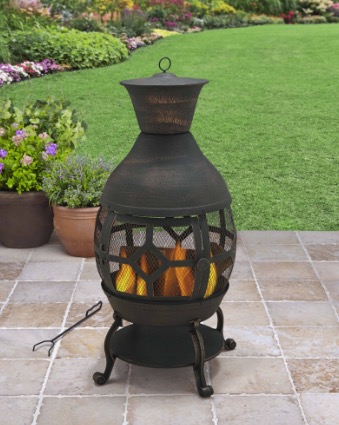
More Chiminea Cleaning Tips
Along with these tips, there are everyday things you can do to maintain the longevity of your chiminea. It is important to clean the chiminea regularly, by removing the sand, cleaning the grill and interior, and allowing it to dry fully before adding new sand. You should also purchase a cover for your chiminea to protect it from the elements and prevent creatures from crawling inside when it’s not in use. Make sure you only use the cover once the chiminea is fully cooled.
Remember that these fireplaces are not meant to host large fires, only smaller fires. Also, never use water to put out the flames: allow the fire to burn out naturally. The instant change in temperature could cause damage to the chiminea. This is easy to forget, but very important as many a chiminea has broken in this way.
=> Click here to read Our Review of the 3 Best Copper and Aluminium Cast Chimineas
Before we go, here are some added tips from Bents Garden & Home on how to choose your chiminea, if you’re new to them…
Related posts:
 |
 |
 |
 |

About Simmy Parker
Simmy is an outdoor expert who loves to spend time in the wilderness. She received a BS degree in Civil Engineering at Sacramento State University, and has put her skills to use by helping design and build some of the most impressive structures in the world. However, Simmy's true passion lies in sharing her love of nature with others, and she spends much of her free time leading hikes and teaching people about the flora and fauna that can be found all around them.
Thoughts on "Chiminea Care & Maintenance Guide"
 |
 |
 |
 |
You can Get FREE Gifts. Receive Free Backyard Items here. Disable Ad Blocker to get them all now!
Once done, hit anything below
 |
 |
 |
 |
